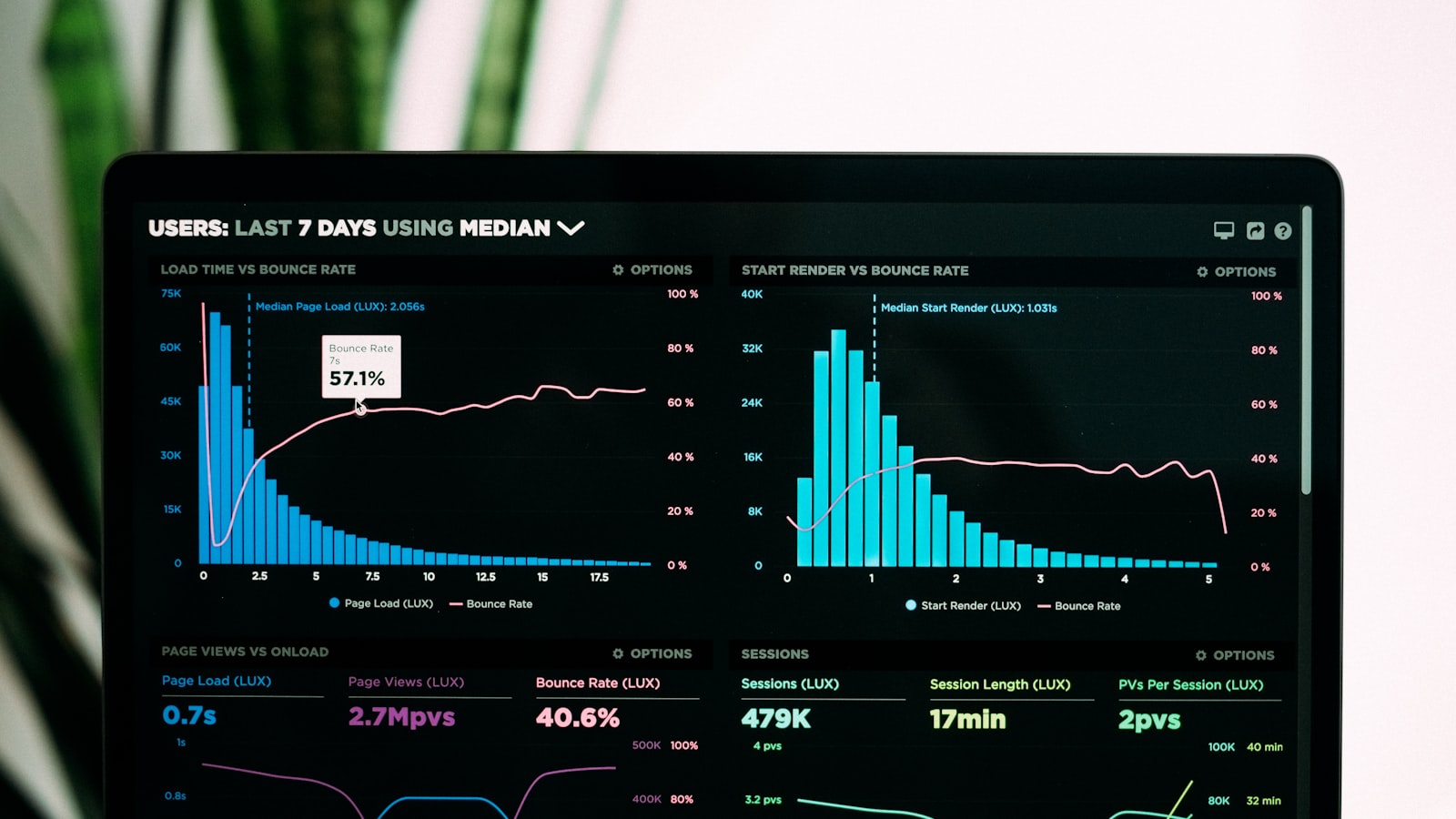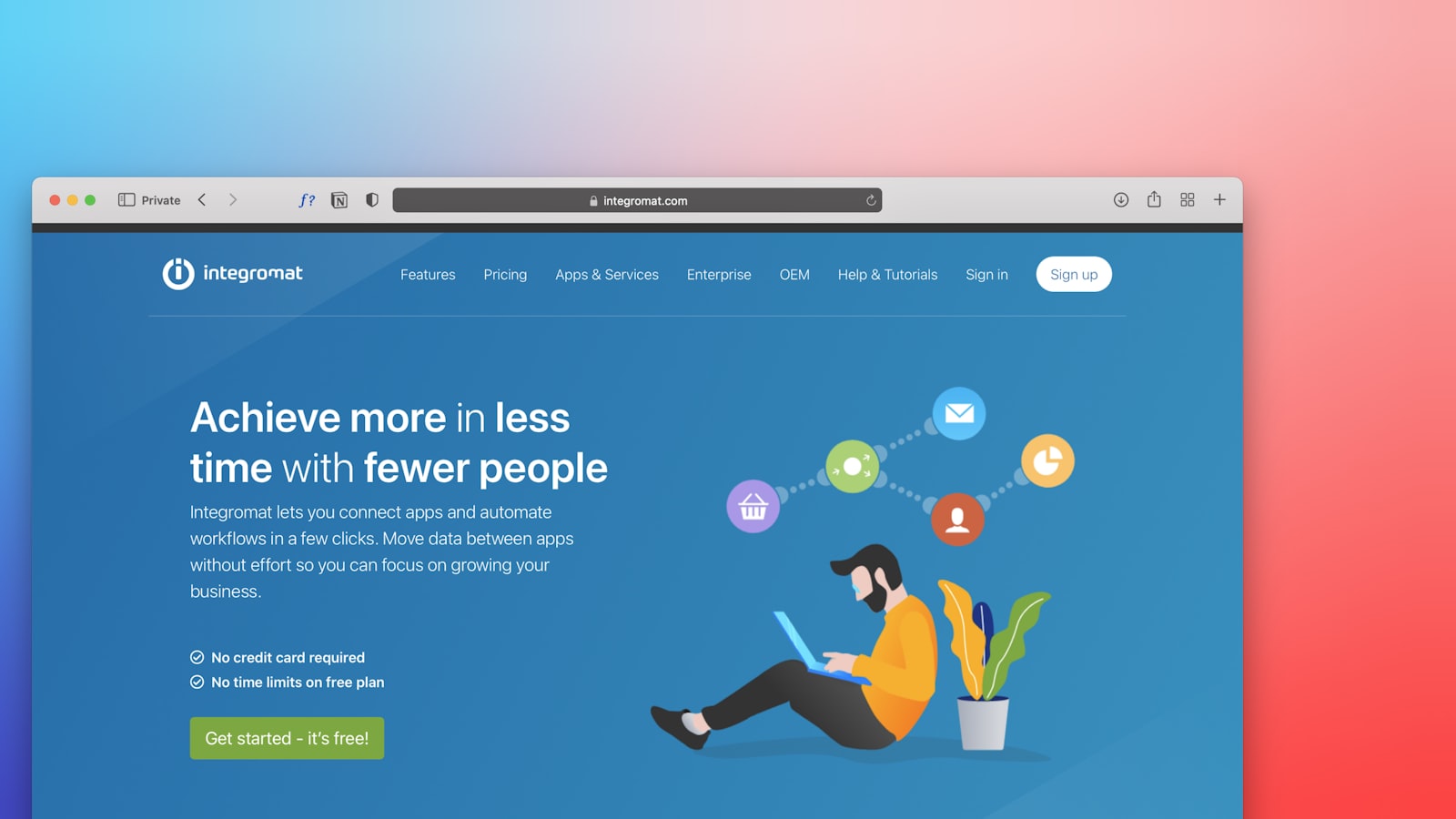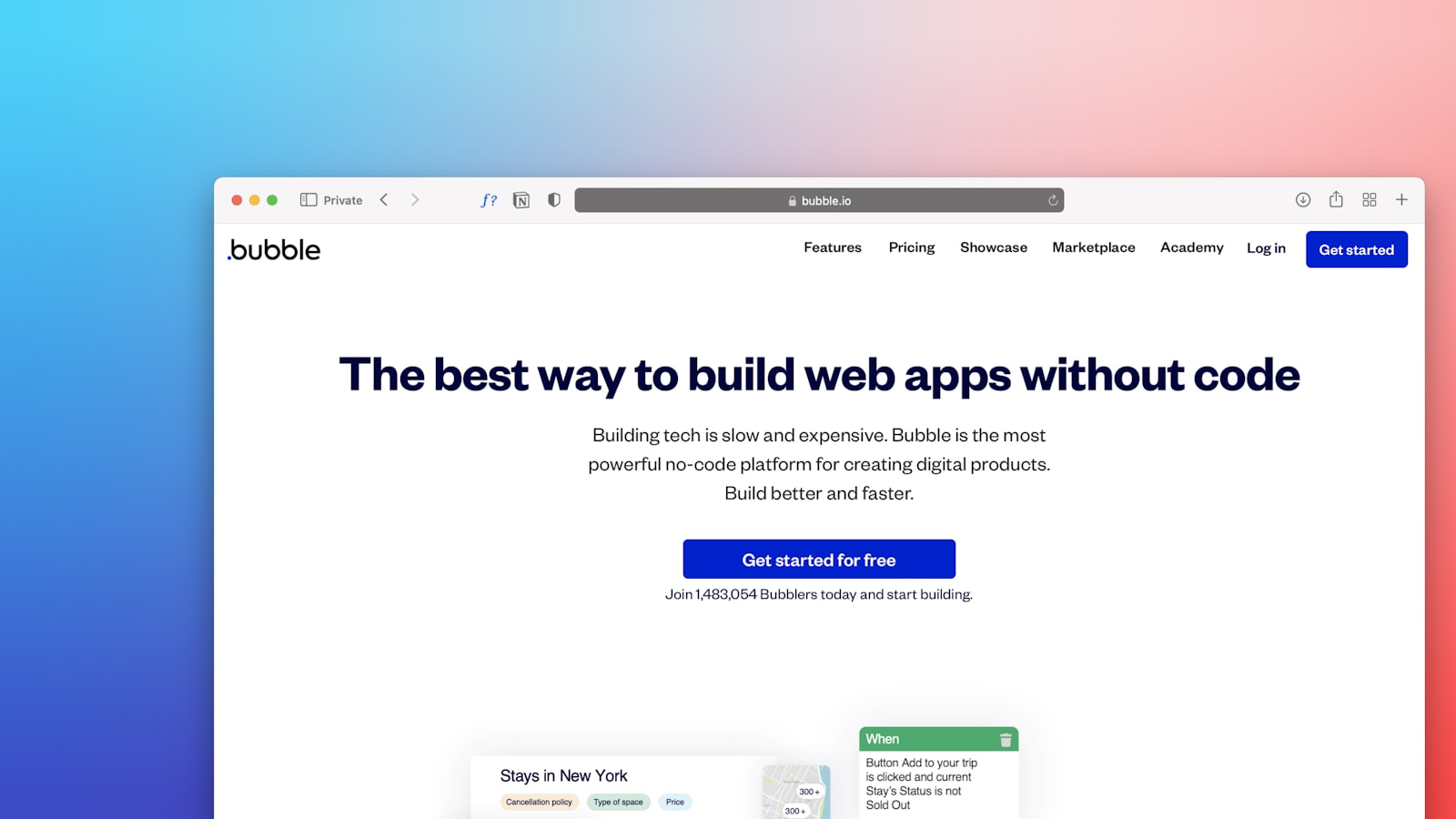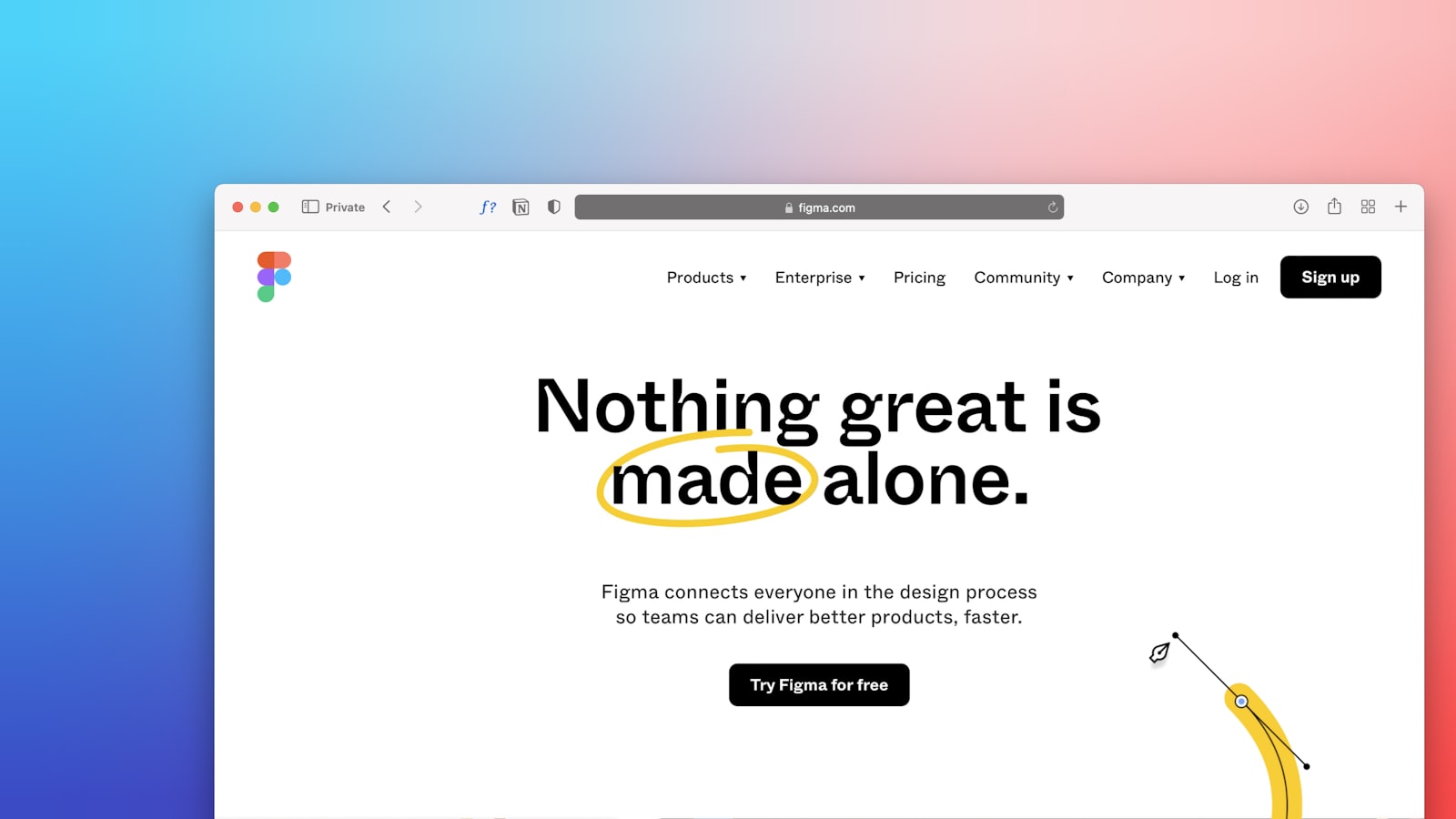How to Identify and Target High-Value Informational Keywords
How to Identify and Target High-Value Informational Keywords
How to Identify and Target High-Value Informational Keywords
Learn how to identify and target high-value informational keywords to boost your SEO strategy and drive valuable organic traffic to your website.
Learn how to identify and target high-value informational keywords to boost your SEO strategy and drive valuable organic traffic to your website.



Introduction
Importance of High-Value Informational Keywords in SEO
Ever feel like your SEO strategies are stuck in a hamster wheel, running fast but getting nowhere? The secret sauce you might be missing is high-value informational keywords. These gems not only attract organic traffic but also engage readers who are genuinely interested in what you have to offer. Think of them as the bread crumbs leading your audience straight to your value-packed content. Ready to ditch the hamster wheel? Let's get those keywords working for you!
Overview of the Article
In this article, we'll walk you through the step-by-step process of researching, identifying, and targeting high-value informational keywords. Here's what you'll learn:
Research Techniques: Discover how to dig up those golden keywords that your audience is searching for.
Identification Tips: Learn how to spot high-value keywords that will drive meaningful traffic.
Targeting Strategies: Find out how to effectively incorporate these keywords into your content to boost engagement and conversions.
By the end of this guide, you'll be armed with actionable insights and practical advice to make your SEO efforts not just effective, but downright unstoppable. Buckle up, it's time to turn those keywords into real-world results!
What are High-Value Informational Keywords?
Definition and Characteristics
High-value informational keywords are search terms used by individuals seeking knowledge or solutions to specific problems. Unlike transactional keywords, which indicate purchase intent, informational keywords target users at the top of the sales funnel. These keywords are typically long-tail, meaning they are more specific and often consist of three or more words. They help attract a broader audience by addressing their questions and providing valuable information.
Key characteristics of high-value informational keywords include:
Specificity: These keywords are often detailed and specific, catering to niche queries.
Intent: They reflect a user's desire to learn or solve a problem, not necessarily to buy something immediately.
Volume: While they may have lower search volumes than broad keywords, they attract highly targeted traffic.
Competition: Generally, they face less competition compared to high-volume, broad keywords, making them easier to rank for.
Examples of Informational Keywords
To illustrate, here are some examples of informational keywords across different industries:
Technology: How to set up a home network, Best practices for data backup
Health: Benefits of a Mediterranean diet, How to manage stress naturally
Finance: Understanding compound interest, Tips for saving for retirement
E-commerce: How to choose the right running shoes, Best eco-friendly products for home
For more insights on finding scalable keywords for programmatic SEO, check out our guide on how to find scalable keywords for SaaS programmatic SEO.
Another useful resource is our article on using long-tail keywords in eCommerce programmatic SEO, which delves deeper into leveraging these specific search terms effectively.

Why Target High-Value Informational Keywords?
Attracting Top-of-Funnel Traffic
High-value informational keywords are your golden ticket to attracting top-of-funnel traffic. These keywords cater to users who are in the early stages of their search journey, looking for information rather than making a purchase. For instance, a user searching for how to start a blog is likely in the research phase. By targeting these queries, you can draw in a broader audience and guide them through your content funnel.
Building Authority and Expertise
When you consistently provide valuable information, you build authority and establish yourself as an expert in your field. Imagine your website becoming the go-to resource for topics like SEO strategies for eCommerce. This not only boosts your credibility but also increases the likelihood of other websites linking back to your content, further enhancing your search engine rankings.
Improving User Experience
Informational keywords help improve user experience by addressing specific questions and providing detailed answers. Users appreciate content that is easy to understand and directly answers their queries. By structuring your content to address these informational searches, you create a more satisfying experience for your visitors, making them more likely to return.
Reducing Bounce Rates
High bounce rates can be a nightmare for your SEO efforts. When users quickly leave your site, it signals to search engines that your content may not be relevant. By targeting informational keywords and providing comprehensive answers, you can keep users engaged longer, reducing bounce rates and improving your site's overall performance.
Enhancing Content Marketing Efforts
Targeting high-value informational keywords can significantly enhance your content marketing efforts. These keywords allow you to create a variety of content types, from blog posts to infographics, that address the needs and interests of your audience. This diversified content strategy can help you reach different segments of your audience and keep your content fresh and engaging.

For more insights on how to effectively find and use these keywords, check out our guide on finding scalable keywords for SaaS programmatic SEO and using long-tail keywords in eCommerce programmatic SEO.
How to Identify High-Value Informational Keywords
Understanding User Intent
Before diving into keyword research, it's essential to grasp user intent. User intent refers to what the searcher is looking to achieve with their query. There are three main types:
Navigational: Users want to find a specific website or page.
Informational: Users seek information or answers to questions.
Commercial: Users are looking to make a purchase or are researching products/services.
Navigational Keywords
Navigational keywords are used when users already know where they want to go. For example, Facebook login or Amazon customer service. These keywords are less about attracting new visitors and more about ensuring your site is easily accessible to returning users.
Informational Keywords
Informational keywords are the bread and butter of content marketing. These are queries like how to bake a cake or what is SEO? Users are looking for valuable information, and targeting these keywords can help position your site as an authority.
Commercial Keywords
Commercial keywords indicate that the user is in the buying cycle. Examples include best laptops 2023 or buy running shoes online. These keywords are crucial for driving conversions and should be part of your overall strategy.
Using Keyword Research Tools
To identify high-value informational keywords, you need the right tools. Here are some of the best in the business:
Google Keyword Planner
Google Keyword Planner is a free tool that provides data on keyword search volume, competition, and trends. It's an excellent starting point for any keyword research.
SEMrush
SEMrush offers comprehensive keyword data, including search volume, keyword difficulty, and competitive analysis. It's a powerful tool for identifying high-value keywords.
Ahrefs
Ahrefs is another robust tool that provides in-depth keyword analysis. It offers insights into keyword difficulty, search volume, and even the top-ranking pages for specific queries.
Ubersuggest
Ubersuggest, created by Neil Patel, is a user-friendly tool that offers keyword suggestions, search volume data, and competitive analysis. It's great for beginners and experts alike.
Leveraging Google Autocomplete and Related Searches
Google Autocomplete and related searches can provide valuable keyword ideas. Start typing a query into Google, and you'll see suggestions based on popular searches. These can be a goldmine for discovering new keywords.
Exploring Q&A Sites and Forums
Q&A sites and forums are excellent places to find out what questions your target audience is asking. Two of the best platforms for this are:
Quora
Quora is a popular Q&A site where users ask and answer questions on a wide range of topics. Search for questions related to your niche to find potential keywords.
Reddit is a massive forum with communities (subreddits) dedicated to almost every topic imaginable. Browse relevant subreddits to see what questions and discussions are trending.
Utilizing Google Trends and Social Listening
Google Trends shows the popularity of search terms over time, helping you identify trending keywords. Social listening tools like Brandwatch or Hootsuite can also provide insights into what your audience is talking about on social media.

For more detailed guidance on finding scalable keywords for programmatic SEO, check out this article.
How to Optimize Content for High-Value Informational Keywords
URL Optimization
Creating user-friendly URLs is a must. Keep your URLs short, descriptive, and include your target informational keywords. This not only helps search engines understand your content but also improves user experience.
Use hyphens to separate words.
Avoid special characters and numbers.
Keep it concise but descriptive.
Keyword Integration
Integrating keywords naturally throughout your content is crucial. Overstuffing keywords can hurt your rankings and readability. Aim for a balanced approach:
Include keywords in the title, headers, and subheaders.
Use variations and synonyms to avoid repetition.
Ensure keywords fit naturally within the text.
Content Structure
A well-structured article is easier to read and more engaging. Use HTML headings (H1, H2, H3) to create a clear hierarchy. This helps both readers and search engines navigate your content.
Start with a strong H1 tag for your main title.
Use H2 tags for main sections and H3 for sub-sections.
Keep paragraphs short and use bullet points for lists.
Content Quality
High-quality content is key to ranking well. Focus on providing valuable information that answers user queries. Make sure your content is:
Accurate and well-researched.
Engaging and easy to read.
Free of grammatical errors and typos.
For more tips on creating effective content, check out our guide on best practices for creating programmatic content.
Multimedia Elements
Incorporating multimedia elements like images, videos, and infographics can enhance user experience and keep readers engaged. Remember to:
Use high-quality images with descriptive alt text.
Embed relevant videos to complement your content.
Include infographics to simplify complex information.

Addressing User Intent
Understanding and addressing user intent is fundamental. Your content should align with what users are looking for. This means:
Identifying the type of information users seek.
Providing clear and concise answers to their queries.
Ensuring your content is relevant to the search terms.
For more insights on aligning content with user intent, visit our article on customer journey mapping in programmatic SEO.
Monitoring and Adjusting Your Strategy
Analyzing Keyword Performance
Monitoring your keyword performance is like checking your car's fuel gauge before a long trip. You need to know if you're on the right track or if adjustments are needed. Use tools like Google Analytics and Google Search Console to see which keywords are driving traffic and which ones are just taking up space. Look for patterns in your data to understand what’s working and what’s not.
Competitor Analysis
Ever wonder why your competitor's content is ranking higher? It's time to find out. Competitor analysis helps you understand the keywords they're targeting and how you can do it better. Use tools like SEMrush and Ahrefs to spy on your competition. Identify gaps in their strategy and capitalize on them. Remember, it's not about copying but about doing it better.
Continuous Content Updates
SEO is not a set-it-and-forget-it game. Regularly updating your content keeps it fresh and relevant. This doesn't mean rewriting everything but making tweaks based on performance data. Add new information, update outdated stats, and refine your keywords. Fresh content signals to search engines that your site is active and valuable.
Tools for Monitoring and Adjustment
There are several tools at your disposal to keep an eye on your SEO strategy:
Google Analytics: Tracks website traffic and user behavior.
Google Search Console: Monitors search performance and identifies issues.
SEMrush: Offers insights into competitors and keyword performance.
Ahrefs: Provides backlink analysis and keyword tracking.
Ubersuggest: Helps with keyword research and content ideas.
Google Analytics
Google Analytics is your go-to tool for understanding user behavior on your site. It provides insights into which pages are performing well and which ones need improvement. Track metrics like bounce rate, session duration, and conversion rates. Use this data to refine your content and keyword strategy.
Google Search Console
Google Search Console is essential for monitoring your site's search performance. It shows you which queries bring users to your site and how your pages are performing in search results. Use it to identify and fix issues like crawl errors and mobile usability problems. Regularly check your performance reports to stay on top of your SEO game.
For more insights on keyword strategies, check out our guide on finding scalable keywords for SaaS programmatic SEO and using long-tail keywords in eCommerce programmatic SEO.

Conclusion
Recap of Key Points
Throughout this guide, we've covered the essentials of identifying and targeting high-value informational keywords. Here's a quick recap:
**Definition and Characteristics:** We defined what high-value informational keywords are and their unique traits.
**Why Target Them:** We discussed the benefits, such as attracting top-of-funnel traffic, building authority, and improving user experience.
**Identification Methods:** We explored various tools and techniques for finding these keywords, including Google Keyword Planner, SEMrush, Ahrefs, and Ubersuggest.
**Optimization:** We provided tips on optimizing content for these keywords, focusing on URL optimization, keyword integration, and content structure.
**Monitoring and Adjusting:** We emphasized the importance of analyzing keyword performance and making continuous updates to your strategy.
Importance of a Balanced SEO Strategy
While targeting high-value informational keywords is crucial, it's just one piece of the SEO puzzle. A balanced strategy ensures that you not only attract visitors but also engage and convert them. This involves:
**Using a mix of keyword types:** Incorporate navigational, informational, and commercial keywords to cover all stages of the customer journey. For more on this, check out our guide on finding scalable keywords for SaaS.
**Creating high-quality content:** Ensure your content is valuable, well-structured, and addresses user intent. For tips, see our article on best practices for creating programmatic content.
**Regularly updating content:** Keep your content fresh and relevant to maintain its effectiveness. Learn more about this in our piece on creating effective page templates.
Final Thoughts and Next Steps
Mastering the art of identifying and targeting high-value informational keywords can significantly boost your SEO efforts. However, it's essential to keep learning and adapting. Here are your next steps:
**Conduct a keyword audit:** Use tools like Google Keyword Planner and Ahrefs to identify potential high-value keywords.
**Optimize existing content:** Integrate these keywords into your current content where appropriate.
**Create new content:** Develop new articles or pages focused on these high-value informational keywords.
**Monitor performance:** Regularly check your keyword rankings and adjust your strategy as needed. Utilize tools like Google Analytics and Google Search Console for this purpose.
For more detailed guidance, explore our resources on customer journey mapping and content syndication.

Introduction
Importance of High-Value Informational Keywords in SEO
Ever feel like your SEO strategies are stuck in a hamster wheel, running fast but getting nowhere? The secret sauce you might be missing is high-value informational keywords. These gems not only attract organic traffic but also engage readers who are genuinely interested in what you have to offer. Think of them as the bread crumbs leading your audience straight to your value-packed content. Ready to ditch the hamster wheel? Let's get those keywords working for you!
Overview of the Article
In this article, we'll walk you through the step-by-step process of researching, identifying, and targeting high-value informational keywords. Here's what you'll learn:
Research Techniques: Discover how to dig up those golden keywords that your audience is searching for.
Identification Tips: Learn how to spot high-value keywords that will drive meaningful traffic.
Targeting Strategies: Find out how to effectively incorporate these keywords into your content to boost engagement and conversions.
By the end of this guide, you'll be armed with actionable insights and practical advice to make your SEO efforts not just effective, but downright unstoppable. Buckle up, it's time to turn those keywords into real-world results!
What are High-Value Informational Keywords?
Definition and Characteristics
High-value informational keywords are search terms used by individuals seeking knowledge or solutions to specific problems. Unlike transactional keywords, which indicate purchase intent, informational keywords target users at the top of the sales funnel. These keywords are typically long-tail, meaning they are more specific and often consist of three or more words. They help attract a broader audience by addressing their questions and providing valuable information.
Key characteristics of high-value informational keywords include:
Specificity: These keywords are often detailed and specific, catering to niche queries.
Intent: They reflect a user's desire to learn or solve a problem, not necessarily to buy something immediately.
Volume: While they may have lower search volumes than broad keywords, they attract highly targeted traffic.
Competition: Generally, they face less competition compared to high-volume, broad keywords, making them easier to rank for.
Examples of Informational Keywords
To illustrate, here are some examples of informational keywords across different industries:
Technology: How to set up a home network, Best practices for data backup
Health: Benefits of a Mediterranean diet, How to manage stress naturally
Finance: Understanding compound interest, Tips for saving for retirement
E-commerce: How to choose the right running shoes, Best eco-friendly products for home
For more insights on finding scalable keywords for programmatic SEO, check out our guide on how to find scalable keywords for SaaS programmatic SEO.
Another useful resource is our article on using long-tail keywords in eCommerce programmatic SEO, which delves deeper into leveraging these specific search terms effectively.

Why Target High-Value Informational Keywords?
Attracting Top-of-Funnel Traffic
High-value informational keywords are your golden ticket to attracting top-of-funnel traffic. These keywords cater to users who are in the early stages of their search journey, looking for information rather than making a purchase. For instance, a user searching for how to start a blog is likely in the research phase. By targeting these queries, you can draw in a broader audience and guide them through your content funnel.
Building Authority and Expertise
When you consistently provide valuable information, you build authority and establish yourself as an expert in your field. Imagine your website becoming the go-to resource for topics like SEO strategies for eCommerce. This not only boosts your credibility but also increases the likelihood of other websites linking back to your content, further enhancing your search engine rankings.
Improving User Experience
Informational keywords help improve user experience by addressing specific questions and providing detailed answers. Users appreciate content that is easy to understand and directly answers their queries. By structuring your content to address these informational searches, you create a more satisfying experience for your visitors, making them more likely to return.
Reducing Bounce Rates
High bounce rates can be a nightmare for your SEO efforts. When users quickly leave your site, it signals to search engines that your content may not be relevant. By targeting informational keywords and providing comprehensive answers, you can keep users engaged longer, reducing bounce rates and improving your site's overall performance.
Enhancing Content Marketing Efforts
Targeting high-value informational keywords can significantly enhance your content marketing efforts. These keywords allow you to create a variety of content types, from blog posts to infographics, that address the needs and interests of your audience. This diversified content strategy can help you reach different segments of your audience and keep your content fresh and engaging.

For more insights on how to effectively find and use these keywords, check out our guide on finding scalable keywords for SaaS programmatic SEO and using long-tail keywords in eCommerce programmatic SEO.
How to Identify High-Value Informational Keywords
Understanding User Intent
Before diving into keyword research, it's essential to grasp user intent. User intent refers to what the searcher is looking to achieve with their query. There are three main types:
Navigational: Users want to find a specific website or page.
Informational: Users seek information or answers to questions.
Commercial: Users are looking to make a purchase or are researching products/services.
Navigational Keywords
Navigational keywords are used when users already know where they want to go. For example, Facebook login or Amazon customer service. These keywords are less about attracting new visitors and more about ensuring your site is easily accessible to returning users.
Informational Keywords
Informational keywords are the bread and butter of content marketing. These are queries like how to bake a cake or what is SEO? Users are looking for valuable information, and targeting these keywords can help position your site as an authority.
Commercial Keywords
Commercial keywords indicate that the user is in the buying cycle. Examples include best laptops 2023 or buy running shoes online. These keywords are crucial for driving conversions and should be part of your overall strategy.
Using Keyword Research Tools
To identify high-value informational keywords, you need the right tools. Here are some of the best in the business:
Google Keyword Planner
Google Keyword Planner is a free tool that provides data on keyword search volume, competition, and trends. It's an excellent starting point for any keyword research.
SEMrush
SEMrush offers comprehensive keyword data, including search volume, keyword difficulty, and competitive analysis. It's a powerful tool for identifying high-value keywords.
Ahrefs
Ahrefs is another robust tool that provides in-depth keyword analysis. It offers insights into keyword difficulty, search volume, and even the top-ranking pages for specific queries.
Ubersuggest
Ubersuggest, created by Neil Patel, is a user-friendly tool that offers keyword suggestions, search volume data, and competitive analysis. It's great for beginners and experts alike.
Leveraging Google Autocomplete and Related Searches
Google Autocomplete and related searches can provide valuable keyword ideas. Start typing a query into Google, and you'll see suggestions based on popular searches. These can be a goldmine for discovering new keywords.
Exploring Q&A Sites and Forums
Q&A sites and forums are excellent places to find out what questions your target audience is asking. Two of the best platforms for this are:
Quora
Quora is a popular Q&A site where users ask and answer questions on a wide range of topics. Search for questions related to your niche to find potential keywords.
Reddit is a massive forum with communities (subreddits) dedicated to almost every topic imaginable. Browse relevant subreddits to see what questions and discussions are trending.
Utilizing Google Trends and Social Listening
Google Trends shows the popularity of search terms over time, helping you identify trending keywords. Social listening tools like Brandwatch or Hootsuite can also provide insights into what your audience is talking about on social media.

For more detailed guidance on finding scalable keywords for programmatic SEO, check out this article.
How to Optimize Content for High-Value Informational Keywords
URL Optimization
Creating user-friendly URLs is a must. Keep your URLs short, descriptive, and include your target informational keywords. This not only helps search engines understand your content but also improves user experience.
Use hyphens to separate words.
Avoid special characters and numbers.
Keep it concise but descriptive.
Keyword Integration
Integrating keywords naturally throughout your content is crucial. Overstuffing keywords can hurt your rankings and readability. Aim for a balanced approach:
Include keywords in the title, headers, and subheaders.
Use variations and synonyms to avoid repetition.
Ensure keywords fit naturally within the text.
Content Structure
A well-structured article is easier to read and more engaging. Use HTML headings (H1, H2, H3) to create a clear hierarchy. This helps both readers and search engines navigate your content.
Start with a strong H1 tag for your main title.
Use H2 tags for main sections and H3 for sub-sections.
Keep paragraphs short and use bullet points for lists.
Content Quality
High-quality content is key to ranking well. Focus on providing valuable information that answers user queries. Make sure your content is:
Accurate and well-researched.
Engaging and easy to read.
Free of grammatical errors and typos.
For more tips on creating effective content, check out our guide on best practices for creating programmatic content.
Multimedia Elements
Incorporating multimedia elements like images, videos, and infographics can enhance user experience and keep readers engaged. Remember to:
Use high-quality images with descriptive alt text.
Embed relevant videos to complement your content.
Include infographics to simplify complex information.

Addressing User Intent
Understanding and addressing user intent is fundamental. Your content should align with what users are looking for. This means:
Identifying the type of information users seek.
Providing clear and concise answers to their queries.
Ensuring your content is relevant to the search terms.
For more insights on aligning content with user intent, visit our article on customer journey mapping in programmatic SEO.
Monitoring and Adjusting Your Strategy
Analyzing Keyword Performance
Monitoring your keyword performance is like checking your car's fuel gauge before a long trip. You need to know if you're on the right track or if adjustments are needed. Use tools like Google Analytics and Google Search Console to see which keywords are driving traffic and which ones are just taking up space. Look for patterns in your data to understand what’s working and what’s not.
Competitor Analysis
Ever wonder why your competitor's content is ranking higher? It's time to find out. Competitor analysis helps you understand the keywords they're targeting and how you can do it better. Use tools like SEMrush and Ahrefs to spy on your competition. Identify gaps in their strategy and capitalize on them. Remember, it's not about copying but about doing it better.
Continuous Content Updates
SEO is not a set-it-and-forget-it game. Regularly updating your content keeps it fresh and relevant. This doesn't mean rewriting everything but making tweaks based on performance data. Add new information, update outdated stats, and refine your keywords. Fresh content signals to search engines that your site is active and valuable.
Tools for Monitoring and Adjustment
There are several tools at your disposal to keep an eye on your SEO strategy:
Google Analytics: Tracks website traffic and user behavior.
Google Search Console: Monitors search performance and identifies issues.
SEMrush: Offers insights into competitors and keyword performance.
Ahrefs: Provides backlink analysis and keyword tracking.
Ubersuggest: Helps with keyword research and content ideas.
Google Analytics
Google Analytics is your go-to tool for understanding user behavior on your site. It provides insights into which pages are performing well and which ones need improvement. Track metrics like bounce rate, session duration, and conversion rates. Use this data to refine your content and keyword strategy.
Google Search Console
Google Search Console is essential for monitoring your site's search performance. It shows you which queries bring users to your site and how your pages are performing in search results. Use it to identify and fix issues like crawl errors and mobile usability problems. Regularly check your performance reports to stay on top of your SEO game.
For more insights on keyword strategies, check out our guide on finding scalable keywords for SaaS programmatic SEO and using long-tail keywords in eCommerce programmatic SEO.

Conclusion
Recap of Key Points
Throughout this guide, we've covered the essentials of identifying and targeting high-value informational keywords. Here's a quick recap:
**Definition and Characteristics:** We defined what high-value informational keywords are and their unique traits.
**Why Target Them:** We discussed the benefits, such as attracting top-of-funnel traffic, building authority, and improving user experience.
**Identification Methods:** We explored various tools and techniques for finding these keywords, including Google Keyword Planner, SEMrush, Ahrefs, and Ubersuggest.
**Optimization:** We provided tips on optimizing content for these keywords, focusing on URL optimization, keyword integration, and content structure.
**Monitoring and Adjusting:** We emphasized the importance of analyzing keyword performance and making continuous updates to your strategy.
Importance of a Balanced SEO Strategy
While targeting high-value informational keywords is crucial, it's just one piece of the SEO puzzle. A balanced strategy ensures that you not only attract visitors but also engage and convert them. This involves:
**Using a mix of keyword types:** Incorporate navigational, informational, and commercial keywords to cover all stages of the customer journey. For more on this, check out our guide on finding scalable keywords for SaaS.
**Creating high-quality content:** Ensure your content is valuable, well-structured, and addresses user intent. For tips, see our article on best practices for creating programmatic content.
**Regularly updating content:** Keep your content fresh and relevant to maintain its effectiveness. Learn more about this in our piece on creating effective page templates.
Final Thoughts and Next Steps
Mastering the art of identifying and targeting high-value informational keywords can significantly boost your SEO efforts. However, it's essential to keep learning and adapting. Here are your next steps:
**Conduct a keyword audit:** Use tools like Google Keyword Planner and Ahrefs to identify potential high-value keywords.
**Optimize existing content:** Integrate these keywords into your current content where appropriate.
**Create new content:** Develop new articles or pages focused on these high-value informational keywords.
**Monitor performance:** Regularly check your keyword rankings and adjust your strategy as needed. Utilize tools like Google Analytics and Google Search Console for this purpose.
For more detailed guidance, explore our resources on customer journey mapping and content syndication.

Introduction
Importance of High-Value Informational Keywords in SEO
Ever feel like your SEO strategies are stuck in a hamster wheel, running fast but getting nowhere? The secret sauce you might be missing is high-value informational keywords. These gems not only attract organic traffic but also engage readers who are genuinely interested in what you have to offer. Think of them as the bread crumbs leading your audience straight to your value-packed content. Ready to ditch the hamster wheel? Let's get those keywords working for you!
Overview of the Article
In this article, we'll walk you through the step-by-step process of researching, identifying, and targeting high-value informational keywords. Here's what you'll learn:
Research Techniques: Discover how to dig up those golden keywords that your audience is searching for.
Identification Tips: Learn how to spot high-value keywords that will drive meaningful traffic.
Targeting Strategies: Find out how to effectively incorporate these keywords into your content to boost engagement and conversions.
By the end of this guide, you'll be armed with actionable insights and practical advice to make your SEO efforts not just effective, but downright unstoppable. Buckle up, it's time to turn those keywords into real-world results!
What are High-Value Informational Keywords?
Definition and Characteristics
High-value informational keywords are search terms used by individuals seeking knowledge or solutions to specific problems. Unlike transactional keywords, which indicate purchase intent, informational keywords target users at the top of the sales funnel. These keywords are typically long-tail, meaning they are more specific and often consist of three or more words. They help attract a broader audience by addressing their questions and providing valuable information.
Key characteristics of high-value informational keywords include:
Specificity: These keywords are often detailed and specific, catering to niche queries.
Intent: They reflect a user's desire to learn or solve a problem, not necessarily to buy something immediately.
Volume: While they may have lower search volumes than broad keywords, they attract highly targeted traffic.
Competition: Generally, they face less competition compared to high-volume, broad keywords, making them easier to rank for.
Examples of Informational Keywords
To illustrate, here are some examples of informational keywords across different industries:
Technology: How to set up a home network, Best practices for data backup
Health: Benefits of a Mediterranean diet, How to manage stress naturally
Finance: Understanding compound interest, Tips for saving for retirement
E-commerce: How to choose the right running shoes, Best eco-friendly products for home
For more insights on finding scalable keywords for programmatic SEO, check out our guide on how to find scalable keywords for SaaS programmatic SEO.
Another useful resource is our article on using long-tail keywords in eCommerce programmatic SEO, which delves deeper into leveraging these specific search terms effectively.

Why Target High-Value Informational Keywords?
Attracting Top-of-Funnel Traffic
High-value informational keywords are your golden ticket to attracting top-of-funnel traffic. These keywords cater to users who are in the early stages of their search journey, looking for information rather than making a purchase. For instance, a user searching for how to start a blog is likely in the research phase. By targeting these queries, you can draw in a broader audience and guide them through your content funnel.
Building Authority and Expertise
When you consistently provide valuable information, you build authority and establish yourself as an expert in your field. Imagine your website becoming the go-to resource for topics like SEO strategies for eCommerce. This not only boosts your credibility but also increases the likelihood of other websites linking back to your content, further enhancing your search engine rankings.
Improving User Experience
Informational keywords help improve user experience by addressing specific questions and providing detailed answers. Users appreciate content that is easy to understand and directly answers their queries. By structuring your content to address these informational searches, you create a more satisfying experience for your visitors, making them more likely to return.
Reducing Bounce Rates
High bounce rates can be a nightmare for your SEO efforts. When users quickly leave your site, it signals to search engines that your content may not be relevant. By targeting informational keywords and providing comprehensive answers, you can keep users engaged longer, reducing bounce rates and improving your site's overall performance.
Enhancing Content Marketing Efforts
Targeting high-value informational keywords can significantly enhance your content marketing efforts. These keywords allow you to create a variety of content types, from blog posts to infographics, that address the needs and interests of your audience. This diversified content strategy can help you reach different segments of your audience and keep your content fresh and engaging.

For more insights on how to effectively find and use these keywords, check out our guide on finding scalable keywords for SaaS programmatic SEO and using long-tail keywords in eCommerce programmatic SEO.
How to Identify High-Value Informational Keywords
Understanding User Intent
Before diving into keyword research, it's essential to grasp user intent. User intent refers to what the searcher is looking to achieve with their query. There are three main types:
Navigational: Users want to find a specific website or page.
Informational: Users seek information or answers to questions.
Commercial: Users are looking to make a purchase or are researching products/services.
Navigational Keywords
Navigational keywords are used when users already know where they want to go. For example, Facebook login or Amazon customer service. These keywords are less about attracting new visitors and more about ensuring your site is easily accessible to returning users.
Informational Keywords
Informational keywords are the bread and butter of content marketing. These are queries like how to bake a cake or what is SEO? Users are looking for valuable information, and targeting these keywords can help position your site as an authority.
Commercial Keywords
Commercial keywords indicate that the user is in the buying cycle. Examples include best laptops 2023 or buy running shoes online. These keywords are crucial for driving conversions and should be part of your overall strategy.
Using Keyword Research Tools
To identify high-value informational keywords, you need the right tools. Here are some of the best in the business:
Google Keyword Planner
Google Keyword Planner is a free tool that provides data on keyword search volume, competition, and trends. It's an excellent starting point for any keyword research.
SEMrush
SEMrush offers comprehensive keyword data, including search volume, keyword difficulty, and competitive analysis. It's a powerful tool for identifying high-value keywords.
Ahrefs
Ahrefs is another robust tool that provides in-depth keyword analysis. It offers insights into keyword difficulty, search volume, and even the top-ranking pages for specific queries.
Ubersuggest
Ubersuggest, created by Neil Patel, is a user-friendly tool that offers keyword suggestions, search volume data, and competitive analysis. It's great for beginners and experts alike.
Leveraging Google Autocomplete and Related Searches
Google Autocomplete and related searches can provide valuable keyword ideas. Start typing a query into Google, and you'll see suggestions based on popular searches. These can be a goldmine for discovering new keywords.
Exploring Q&A Sites and Forums
Q&A sites and forums are excellent places to find out what questions your target audience is asking. Two of the best platforms for this are:
Quora
Quora is a popular Q&A site where users ask and answer questions on a wide range of topics. Search for questions related to your niche to find potential keywords.
Reddit is a massive forum with communities (subreddits) dedicated to almost every topic imaginable. Browse relevant subreddits to see what questions and discussions are trending.
Utilizing Google Trends and Social Listening
Google Trends shows the popularity of search terms over time, helping you identify trending keywords. Social listening tools like Brandwatch or Hootsuite can also provide insights into what your audience is talking about on social media.

For more detailed guidance on finding scalable keywords for programmatic SEO, check out this article.
How to Optimize Content for High-Value Informational Keywords
URL Optimization
Creating user-friendly URLs is a must. Keep your URLs short, descriptive, and include your target informational keywords. This not only helps search engines understand your content but also improves user experience.
Use hyphens to separate words.
Avoid special characters and numbers.
Keep it concise but descriptive.
Keyword Integration
Integrating keywords naturally throughout your content is crucial. Overstuffing keywords can hurt your rankings and readability. Aim for a balanced approach:
Include keywords in the title, headers, and subheaders.
Use variations and synonyms to avoid repetition.
Ensure keywords fit naturally within the text.
Content Structure
A well-structured article is easier to read and more engaging. Use HTML headings (H1, H2, H3) to create a clear hierarchy. This helps both readers and search engines navigate your content.
Start with a strong H1 tag for your main title.
Use H2 tags for main sections and H3 for sub-sections.
Keep paragraphs short and use bullet points for lists.
Content Quality
High-quality content is key to ranking well. Focus on providing valuable information that answers user queries. Make sure your content is:
Accurate and well-researched.
Engaging and easy to read.
Free of grammatical errors and typos.
For more tips on creating effective content, check out our guide on best practices for creating programmatic content.
Multimedia Elements
Incorporating multimedia elements like images, videos, and infographics can enhance user experience and keep readers engaged. Remember to:
Use high-quality images with descriptive alt text.
Embed relevant videos to complement your content.
Include infographics to simplify complex information.

Addressing User Intent
Understanding and addressing user intent is fundamental. Your content should align with what users are looking for. This means:
Identifying the type of information users seek.
Providing clear and concise answers to their queries.
Ensuring your content is relevant to the search terms.
For more insights on aligning content with user intent, visit our article on customer journey mapping in programmatic SEO.
Monitoring and Adjusting Your Strategy
Analyzing Keyword Performance
Monitoring your keyword performance is like checking your car's fuel gauge before a long trip. You need to know if you're on the right track or if adjustments are needed. Use tools like Google Analytics and Google Search Console to see which keywords are driving traffic and which ones are just taking up space. Look for patterns in your data to understand what’s working and what’s not.
Competitor Analysis
Ever wonder why your competitor's content is ranking higher? It's time to find out. Competitor analysis helps you understand the keywords they're targeting and how you can do it better. Use tools like SEMrush and Ahrefs to spy on your competition. Identify gaps in their strategy and capitalize on them. Remember, it's not about copying but about doing it better.
Continuous Content Updates
SEO is not a set-it-and-forget-it game. Regularly updating your content keeps it fresh and relevant. This doesn't mean rewriting everything but making tweaks based on performance data. Add new information, update outdated stats, and refine your keywords. Fresh content signals to search engines that your site is active and valuable.
Tools for Monitoring and Adjustment
There are several tools at your disposal to keep an eye on your SEO strategy:
Google Analytics: Tracks website traffic and user behavior.
Google Search Console: Monitors search performance and identifies issues.
SEMrush: Offers insights into competitors and keyword performance.
Ahrefs: Provides backlink analysis and keyword tracking.
Ubersuggest: Helps with keyword research and content ideas.
Google Analytics
Google Analytics is your go-to tool for understanding user behavior on your site. It provides insights into which pages are performing well and which ones need improvement. Track metrics like bounce rate, session duration, and conversion rates. Use this data to refine your content and keyword strategy.
Google Search Console
Google Search Console is essential for monitoring your site's search performance. It shows you which queries bring users to your site and how your pages are performing in search results. Use it to identify and fix issues like crawl errors and mobile usability problems. Regularly check your performance reports to stay on top of your SEO game.
For more insights on keyword strategies, check out our guide on finding scalable keywords for SaaS programmatic SEO and using long-tail keywords in eCommerce programmatic SEO.

Conclusion
Recap of Key Points
Throughout this guide, we've covered the essentials of identifying and targeting high-value informational keywords. Here's a quick recap:
**Definition and Characteristics:** We defined what high-value informational keywords are and their unique traits.
**Why Target Them:** We discussed the benefits, such as attracting top-of-funnel traffic, building authority, and improving user experience.
**Identification Methods:** We explored various tools and techniques for finding these keywords, including Google Keyword Planner, SEMrush, Ahrefs, and Ubersuggest.
**Optimization:** We provided tips on optimizing content for these keywords, focusing on URL optimization, keyword integration, and content structure.
**Monitoring and Adjusting:** We emphasized the importance of analyzing keyword performance and making continuous updates to your strategy.
Importance of a Balanced SEO Strategy
While targeting high-value informational keywords is crucial, it's just one piece of the SEO puzzle. A balanced strategy ensures that you not only attract visitors but also engage and convert them. This involves:
**Using a mix of keyword types:** Incorporate navigational, informational, and commercial keywords to cover all stages of the customer journey. For more on this, check out our guide on finding scalable keywords for SaaS.
**Creating high-quality content:** Ensure your content is valuable, well-structured, and addresses user intent. For tips, see our article on best practices for creating programmatic content.
**Regularly updating content:** Keep your content fresh and relevant to maintain its effectiveness. Learn more about this in our piece on creating effective page templates.
Final Thoughts and Next Steps
Mastering the art of identifying and targeting high-value informational keywords can significantly boost your SEO efforts. However, it's essential to keep learning and adapting. Here are your next steps:
**Conduct a keyword audit:** Use tools like Google Keyword Planner and Ahrefs to identify potential high-value keywords.
**Optimize existing content:** Integrate these keywords into your current content where appropriate.
**Create new content:** Develop new articles or pages focused on these high-value informational keywords.
**Monitor performance:** Regularly check your keyword rankings and adjust your strategy as needed. Utilize tools like Google Analytics and Google Search Console for this purpose.
For more detailed guidance, explore our resources on customer journey mapping and content syndication.

Need help with SEO?
Need help with SEO?
Need help with SEO?
Join our 5-day free course on how to use AI to get more traffic to your website!
Explode your organic traffic and generate red-hot leads without spending a fortune on ads
Claim the top spot on search rankings for the most lucrative keywords in your industry
Cement your position as the undisputed authority in your niche, fostering unshakable trust and loyalty
Skyrocket your conversion rates and revenue with irresistible, customer-centric content
Conquer untapped markets and expand your reach by seizing hidden keyword opportunities
Liberate your time and resources from tedious content tasks, so you can focus on scaling your business
Gain laser-sharp insights into your ideal customers' minds, enabling you to create products and content they can't resist
Harness the power of data-driven decision-making to optimize your marketing for maximum impact
Achieve unstoppable, long-term organic growth without being held hostage by algorithm updates or ad costs
Stay light-years ahead of the competition by leveraging cutting-edge AI to adapt to any market shift or customer trend
Explode your organic traffic and generate red-hot leads without spending a fortune on ads
Claim the top spot on search rankings for the most lucrative keywords in your industry
Cement your position as the undisputed authority in your niche, fostering unshakable trust and loyalty
Skyrocket your conversion rates and revenue with irresistible, customer-centric content
Conquer untapped markets and expand your reach by seizing hidden keyword opportunities
Liberate your time and resources from tedious content tasks, so you can focus on scaling your business
Gain laser-sharp insights into your ideal customers' minds, enabling you to create products and content they can't resist
Harness the power of data-driven decision-making to optimize your marketing for maximum impact
Achieve unstoppable, long-term organic growth without being held hostage by algorithm updates or ad costs
Stay light-years ahead of the competition by leveraging cutting-edge AI to adapt to any market shift or customer trend
Explode your organic traffic and generate red-hot leads without spending a fortune on ads
Claim the top spot on search rankings for the most lucrative keywords in your industry
Cement your position as the undisputed authority in your niche, fostering unshakable trust and loyalty
Skyrocket your conversion rates and revenue with irresistible, customer-centric content
Conquer untapped markets and expand your reach by seizing hidden keyword opportunities
Liberate your time and resources from tedious content tasks, so you can focus on scaling your business
Gain laser-sharp insights into your ideal customers' minds, enabling you to create products and content they can't resist
Harness the power of data-driven decision-making to optimize your marketing for maximum impact
Achieve unstoppable, long-term organic growth without being held hostage by algorithm updates or ad costs
Stay light-years ahead of the competition by leveraging cutting-edge AI to adapt to any market shift or customer trend


































































































































































































































































































































